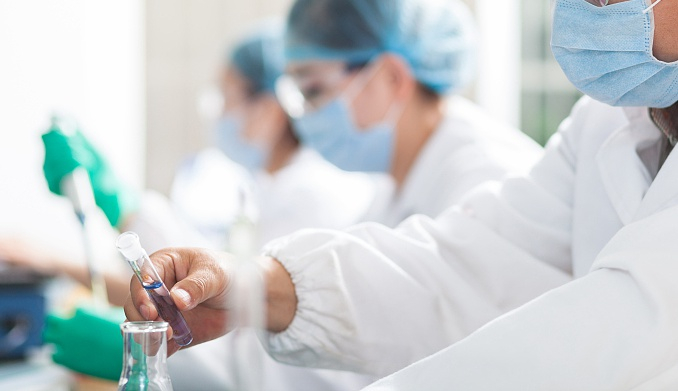

Dihydroartemisinin has a unique effect on the treatment of highly-variable lupus erythematosus, found the team led by Chinese chemist Tu Youyou, besides their new breakthroughs made in the research on artemisinin resistance released Monday.
According to early clinical observation, the team found the effective rate of artemisinin in treating discoid lupus erythematosus exceeded 90 percent, and systemic lupus erythematosus 80 percent.
The approval document for clinical trials of drugs issued by the National Medical Products Administration showed that the application for clinical trials of dihydroartemisinin tablets for the treatment of systemic, and discoid systemic lupus erythematosus had been approved, and the clinical trials are being carried out under the charge of KPC Pharmaceuticals, Inc.
The first-phase clinical trial was launched last May, with 15 domestic hospitals participating. "No unexpected adverse events have occurred in the volunteers so far," said Xue Qiao, medical manager of KPC.
"There is a trend toward artemisinin effectiveness in treating lupus erythematosus, and we are cautiously optimistic that the trial will succeed," said Tu.
Pedro L. Alonso, director of the WHO Global Malaria Program, confirmed the possibility and said further clinical trials with careful design and rigorously implementation following international standards are needed before drawing conclusions.
Clinical trials generally consist of three phases. The second and third phases require larger sample sizes, which will take at least seven to eight years. If successful, the new dihydroartemisinin tablets are expected to be approved for the market as soon as around 2026.

Copyright © 2018 CGTN. Beijing ICP prepared NO.16065310-3
Copyright © 2018 CGTN. Beijing ICP prepared NO.16065310-3